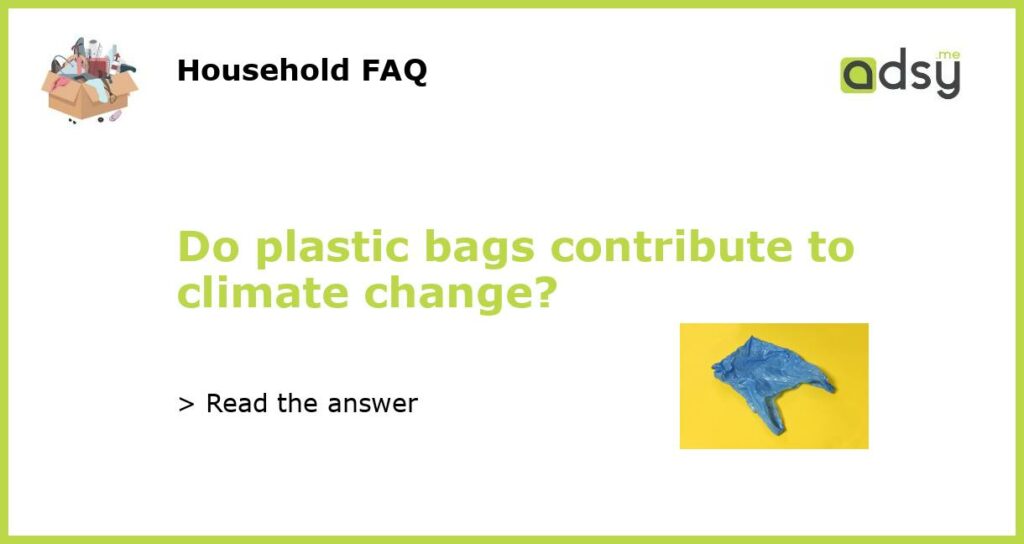Plastic Bags and their Impact on Climate Change
Plastic bags have long been a topic of debate when it comes to their environmental impact. One of the major concerns regarding plastic bags is whether or not they contribute to climate change. In order to understand the relationship between plastic bags and climate change, it is important to examine their life cycle, production process, and disposal methods. Let’s take a closer look at how plastic bags affect our climate.
The Production of Plastic Bags
The production of plastic bags involves the extraction of fossil fuels, such as natural gas and petroleum. These fossil fuels are non-renewable resources that contribute to the release of greenhouse gases into the atmosphere during extraction and processing. The process of converting these raw materials into plastic bags also requires energy, which often comes from burning fossil fuels. As a result, the production of plastic bags significantly contributes to carbon dioxide (CO2) emissions, one of the main drivers of climate change.
The Life Cycle of Plastic Bags
Plastic bags have a relatively short lifespan compared to other plastic products. They are often used for a brief period of time before being disposed of. However, the environmental impact of plastic bags extends beyond their use. Once they are discarded, plastic bags can take hundreds of years to decompose. During this decomposition process, plastic bags release methane gas, a potent greenhouse gas that is known to be a major contributor to climate change. Therefore, even after their intended use, plastic bags continue to contribute to climate change.
Disposal Methods and their Environmental Impact
Improper disposal of plastic bags exacerbates their impact on climate change. Many plastic bags end up in landfills where they take up valuable space and release methane gas during decomposition. Furthermore, plastic bags often find their way into bodies of water, where they pose a significant threat to marine ecosystems. Marine animals can mistake plastic bags for food, leading to ingestion and entanglement, which can result in injury or death. These environmental consequences further highlight the need to properly dispose of plastic bags to mitigate their impact on climate change.
Alternatives to Plastic Bags
Given the adverse environmental impact of plastic bags, finding alternatives is crucial. Reusable bags made from materials such as cotton, canvas, or jute are a sustainable alternative to plastic bags. These reusable bags have a much longer lifespan and can significantly reduce the demand for plastic bags. Additionally, biodegradable and compostable bags made from plant-based materials are becoming increasingly popular. Unlike traditional plastic bags, these biodegradable options break down more easily in the environment and have a lower impact on climate change.
Government Regulations and Individual Actions
Addressing the issue of plastic bags and climate change requires a combination of government regulations and individual actions. Many countries have already implemented bans or fees on single-use plastic bags to encourage consumers to bring their own reusable bags. However, individuals also play a critical role in reducing plastic bag usage and its impact on climate change. By consciously opting for reusable bags and properly disposing of plastic bags, individuals can contribute to the overall reduction in CO2 emissions and mitigate the effects of climate change.






